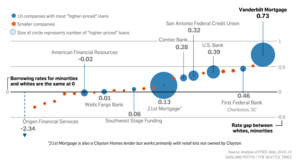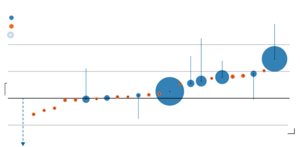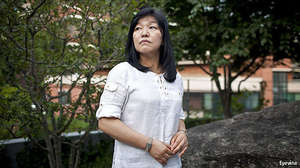She, etc
Misgendering "isn't just a style error," Caitlin Dewey of The Washington Post wrote to describe a Twitter account she created following Ms. Jenner's coming out, to "politely" correct for pronoun misuse. "It's a stubborn, longtime hurdle to transgender acceptance and equality, a fundamental refusal to afford those people even basic grammatical dignity." (The Post, Ms. Dewey's employer, recently announced the term "they" would be included in its stylebook.)
And yet the learning curve remains.
I discovered recently that "trans*," with an asterisk, is now used as an umbrella term for non-cisgender identities -- simpler than listing them all (but still considered respectful). On a recent radio segment, I found out that a newer term for "cisgender" is "chromosomal," as in "chromosomal female," which denotes a person who identifies with the sex (female) she was assigned at birth. (Another way of saying that a person was "assigned female at birth" -- which does not necessarily make her a "chromosomal female" -- is A.F.A.B.).
As for the pronouns: "They" may or may not correspond with these identities -- which is why it's in anybody's best interest to simply ask. But when you do, don't make the common mistake of calling it a preferred pronoun -- as it is not considered to be "preferred."
"The language is evolving daily -- even gender reassignment, people are now calling it gender confirmation!" Jill Soloway, the creator of "Transparent," said in a recent profile in The New Yorker, making the case for "they."
"It's not intuitive at all," her girlfriend, the lesbian poet Eileen Myles, said in the article.
That doesn't even begin to delve into the debate about the evolving use of "woman" and "vagina" -- or, as some prefer to call it, "internal genitalia" -- which is perhaps a linguistic (and political) world unto its own. Mills College recently changed its school chant from "Strong women! Proud women! All women! Mills women!" to "Strong, proud, all, Mills!"
Meanwhile, Mount Holyoke prompted a response from the iconic feminist playwright Eve Ensler after canceling a performance of "The Vagina Monologues" last year (because of its narrow view of gender). (At Columbia, that play has been replaced by a production called "Beyond Cis-terhood.")
Even the venerable NPR host Terry Gross has struggled with the language, repeatedly using the incorrect pronoun when interviewing Ms. Soloway last season about her transgender father, upon whom the show is based.
"I think there are a lot of people who want to do the right thing but are struggling to play catch-up with this new gender revolution," said Ms. Mencher, a former transgender specialist at Smith College, which is one of a handful of historically women's colleges to begin accepting transgender students.
"I begin all my trainings with an invitation for participants to stumble over language, to risk being politically incorrect, to bungle their pronouns -- in the service of learning," Ms. Mencher said.
As for they: Lexicological change won't happen overnight. (Just look at the adoption of Ms.) But it does have a linguistic advantage, in that it's already part of the language.





